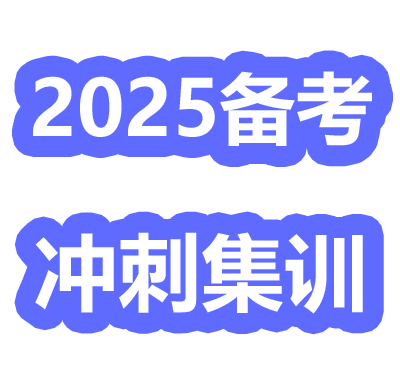
考研人數(shù)逐年增加,競(jìng)爭(zhēng)之激烈使得我們不得不加急復(fù)習(xí)的日程。眾所周知,閱讀理解占據(jù)了考研英語(yǔ)二100分試卷的一半分值,而考研英語(yǔ)閱讀文章大多來自英美國(guó)家的主流報(bào)刊雜志,所以如果能在日常就多多閱讀這些文章,對(duì)以后讀懂文章做對(duì)題目來說會(huì)大有裨益。
學(xué)習(xí)步驟如下:
1.不看漢語(yǔ)譯文自己看一遍短文做理解
2.看漢語(yǔ)譯文比對(duì)自己理解的意思與之出入
3.強(qiáng)化記憶重點(diǎn)單詞(以記憶其漢語(yǔ)意思為主)
But while this may be true, it’s not a good enough reason to condemn gap years. There’s always a constant fear of falling behind everyone else on the socially perpetuated “race to the finish line,” whether that be toward graduate school, medical school or a lucrative career. But despite common misconceptions, a gap year does not hinder the success of academic pursuits – in fact, it probably enhances it.
Studies from the United States and Australia show that students who take a gap year are generally better prepared for and perform better in college than those who do not. Rather than pulling students back, a gap year pushes them ahead by preparing them for independence, new responsibilities and environmental changes – all things that first-year students often struggle with the most. Gap year experiences can lessen the blow when it comes to adjusting to college and being thrown into a brand new environment, making it easier to focus on academics and activities rather than acclimation blunders.
短文翻譯
雖然這可能是事實(shí),但并不是拒絕空檔年的充分理由。人們總是害怕在社會(huì)上永久不變的“沖向終點(diǎn)”的比賽中落后于其他人,無論是在考研、考醫(yī)學(xué)院或是競(jìng)爭(zhēng)高收入職業(yè)方面,均是如此。盡管存在著普遍的誤解,但空檔年并不會(huì)妨礙人們?cè)趯W(xué)術(shù)追求上獲得成功——實(shí)際上,它對(duì)此不無裨益。
來自美國(guó)和澳大利亞的研究顯示,度過空檔年的學(xué)生整體上比沒有度過空檔年的學(xué)生準(zhǔn)備更加充分,在大學(xué)中表現(xiàn)的也更好。空檔年不僅不會(huì)拖學(xué)生們的后腿,還有助于他們?cè)讵?dú)立性、承擔(dān)新責(zé)任和應(yīng)對(duì)環(huán)境變化等方面做好準(zhǔn)備——而這些都是大學(xué)新生時(shí)常面臨的難題。空檔年經(jīng)歷可也減輕適應(yīng)大學(xué)生活和突然進(jìn)入全新環(huán)境時(shí)的各種沖擊,使學(xué)生們更容易將精力集中在學(xué)術(shù)和活動(dòng)上,而不是忙于應(yīng)付環(huán)境導(dǎo)致的失誤。
核心單詞一覽

真題練習(xí)
*一定要做題哦
32.Studies from the U.S. and Australia imply that taking a gap year helps _______.
[A] keep students from being unrealistic
[B] lower risks in choosing careers
[C] ease freshmen’s financial burdens
[D] relieve freshmen of pressures
33.The word “acclimation” (Line 8,Para. 3) is closest in meaning to ________.
[A] adaptation
[B] application
[C] motivation
[D] competition
題目解析
32.【解析】根據(jù)題目中的study from the Australia and U.S.可以定位到第三段第一句話Studies from the United States and Australia show that students who take a gap year are generally better prepared for and perform better in college than those who do not。這句話明確說了有間隔年的學(xué)生比沒有的要好,好在準(zhǔn)備和表現(xiàn)上。所以A:unrealistic和B:choosing career不對(duì)。第二句在表現(xiàn)好的更細(xì)致地方面進(jìn)行了描述:preparing them for independence獨(dú)立性, new responsibilities責(zé)任感 and environmental changes環(huán)境變化。緊隨的破折號(hào)后總結(jié)說了這是 first-year students一年級(jí)學(xué)生 often struggle with the most常常有苦惱的。說明最受益的是gap了一年的大學(xué)一年級(jí)學(xué)生,而整段都沒提過financial burdens,所以C不對(duì)。而D中的pressure是對(duì)前面內(nèi)容的概括性描述,因此答案是D。
33.【解析】這題根據(jù)題干中給的信息,到第三段最后一句中去找答案,Gap year experiences can...when it comes to adjusting to college..., making it easier to...rather than acclimation blunders.這個(gè)句子分兩部分,逗號(hào)+making分詞作狀語(yǔ),從功能上是解釋補(bǔ)充說明前面半句,所以間隔年的好處是能幫助新生調(diào)節(jié)適應(yīng)大學(xué),而不用擔(dān)心acclimation 問題,所以acclimation當(dāng)然就是適應(yīng)的意思了。因此A為正確答案。





